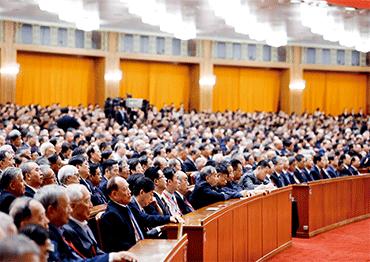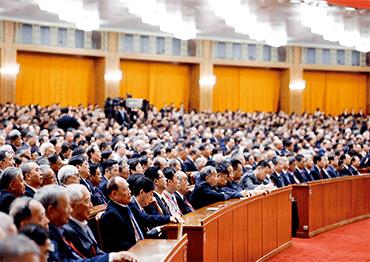Under the revised rules, candidates are now recommended not only by fellow academicians but also by academic organizations. Previously, each academician could recommend three candidates, but this has been reduced to one.
An anonymous academician told NewsChina that reducing the number of recommended candidates is an effective way to prevent nepotism and private dealings.
“When someone has only one precious vote, they are forced to think more carefully about their choice,” Mu said. “This ensures that only the most qualified candidates are shortlisted.”
In addition, candidates under 65 now require only one recommendation, while those over 65 need two. The system favors candidates under 65 to maintain the vitality of the academician community. Generally, the older the candidates are beyond 65, the more difficult and stringent the selection process becomes.
After nominations, the process moves to the crucial stage of voting and selection. The most significant reform is the introduction of an external peer evaluation mechanism. This change opens the process to the wider academic community, moving beyond the traditional model of existing academicians selecting new ones.
However, the detailed voting mechanism and procedures for third-party peer evaluations have not yet been finalized or made public.
During the preliminary selection process, external peer experts are chosen from a pool of overseas Chinese scholars or those within China who have achieved major academic honors, such as the coveted Changjiang Scholar or Distinguished Young Scholar prizes.
Awarded by China’s Ministry of Education, these honors recognize scholars who have made significant contributions in the fields of science, technology or the humanities. The Changjiang Scholar title comes with a prize of up to 2 million yuan (US$281,000) and an annual stipend of 100,000 yuan (US$14,000), while the Distinguished Young Scholar award ranges from 2 to 4 million yuan (US$562,000).
There are six divisions in CAS, each responsible for managing different areas of research, including mathematics and physics, chemistry, life and medical sciences, Earth sciences, IT sciences and technological sciences.
Each division organizes selection panels of experts that can number in the dozens. To ensure impartiality, the evaluation process for new academicians is conducted under strict closed-loop management, where participants work in isolation, with meals delivered to them to maintain focus.
Li Xia, a professor at Shanghai Jiao Tong University’s Institute of Science History and Science Culture, told NewsChina that involving external experts not only broadens the scope of evaluation and improves objectivity, but also makes corruption increasingly difficult.
Mu Rongping added that it is important for peers to express their opinions independently, which was sometimes challenging during previous selections.
Some voiced concerns about the reformed evaluation process, arguing that discussions and exchanges of opinions are necessary. “The value of some research findings requires discussion for clarity,” said the anonymous academician. “If discussions are limited, it could affect the accuracy of the selection in terms of scientific judgement to some extent.”

 Old Version
Old Version
